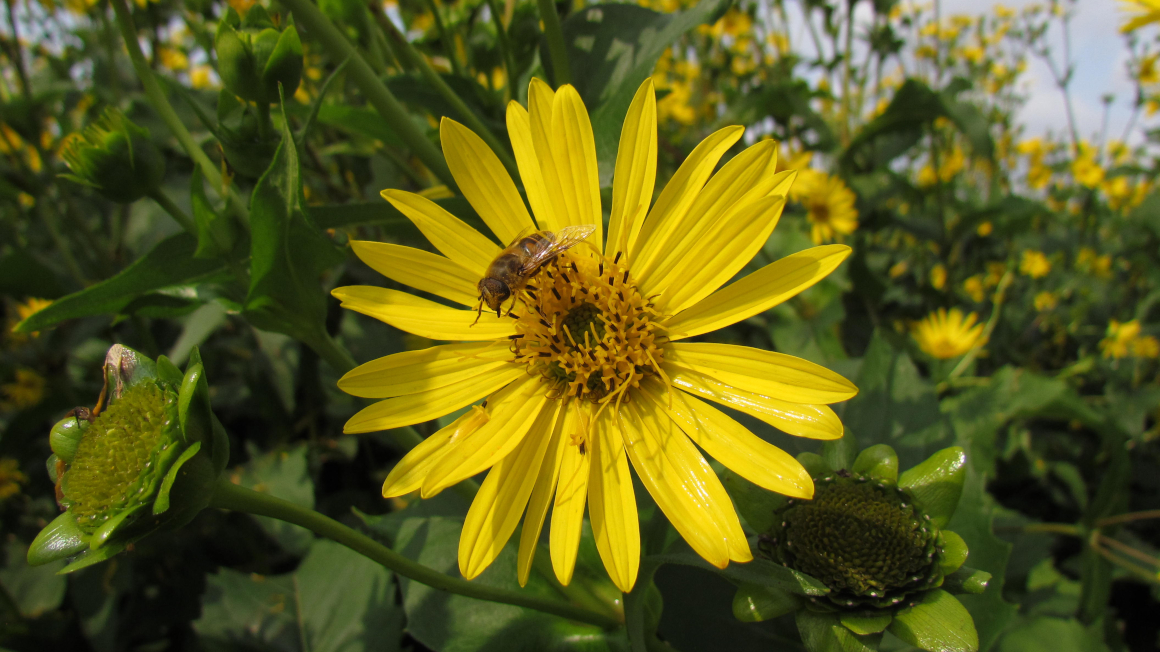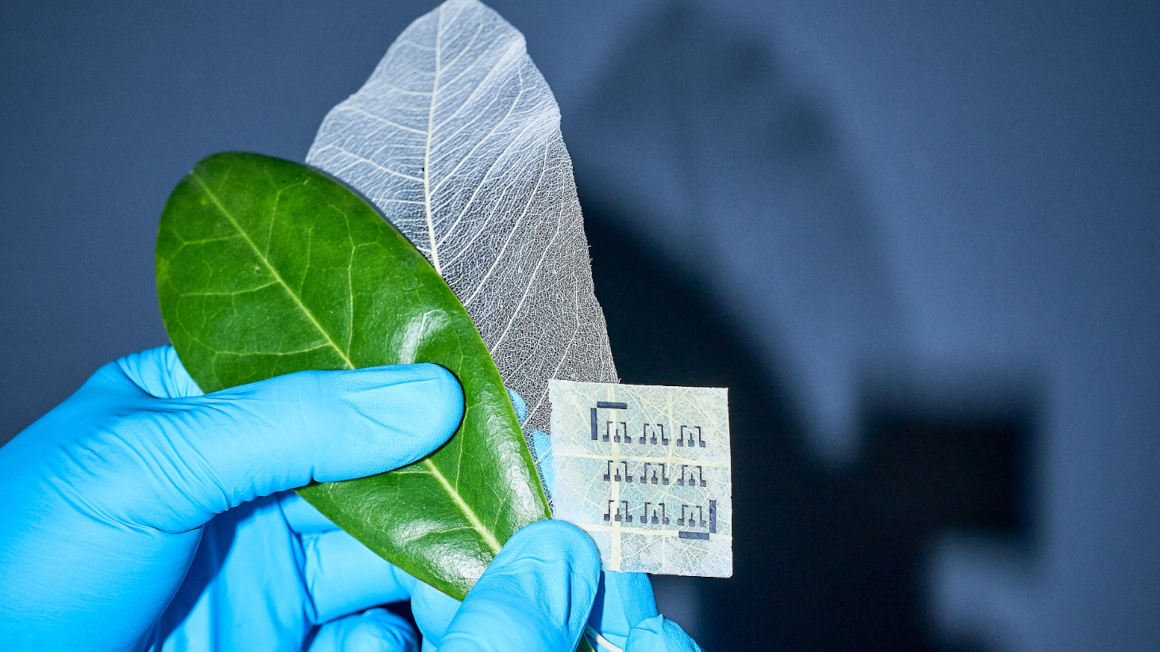Silphium is a convincing sustainable energy crop
A comparative study by the University of Bayreuth shows that the cup plant is a more sustainable alternative to silage maize as an energy crop.

Corn has been the dominant energy crop in Germany to date. However, its cultivation is problematic and is associated with soil erosion, nutrient leaching and, in particular, nitrate contamination of groundwater. An alternative could be the cultivation of the cup plant. Researchers at the University of Bayreuth have conducted a study showing the advantages of cultivating this plant for both energy production and the environment.
The cup plant is a fast-growing plant with deep roots. It originates from North America, is winter-hardy and, above all, produces a lot of biomass. As part of a four-year study, the Bayreuth team has now investigated the potential of the cup plant and silage maize as energy crops in more detail. In addition to the growth of the plant, ecological aspects were also compared.
More biomass, less nitrate leaching
The conclusion: According to the researchers, growing the cup plant can be an ‘ecologically advantageous alternative’ to silage maize. ‘Our results clearly show that the cup plant produces more biomass than maize from the second year onwards. Particularly noteworthy is the cup plant's ability to efficiently absorb nitrogen from the soil, thereby drastically reducing the leaching of nitrate – a nitrogen compound – into the groundwater,’ says Anna Hollweg, a master's student at the University of Bayreuth and lead author of the study. As the team reports in the journal Global Change Biology Bioenergy, nitrate leaching was up to 99% lower for the cup plant than for maize in the third and fourth years of cultivation.
Reliable energy crop even in dry conditions
The cup plant also copes better with drought than traditional energy crops. While maize produced less biomass under drought stress, the cup plant showed only minor losses. ‘In general, the deep root system of the cup plant enables it to access water and nutrients even in deeper soil layers,’ explains Johanna Pausch, Professor of Agricultural Ecology at the University of Bayreuth. Another effect is that the cup plant promotes the activity of microorganisms in the soil, which leads to a long-term improvement in soil quality.
Promising prospects for agriculture
For the researchers, one thing is certain: the cup plant is not only a more sustainable alternative to silage maize. Even under the conditions of climate change, such as increasing drought, it is a ‘reliable energy crop’. They therefore propose ‘planting a combination of maize and the cup plant in the field to reap the benefits of both crops’. ‘Overall, the cup plant offers promising prospects for agriculture that combines productivity and environmental protection,’ says Hollweg.
bb


